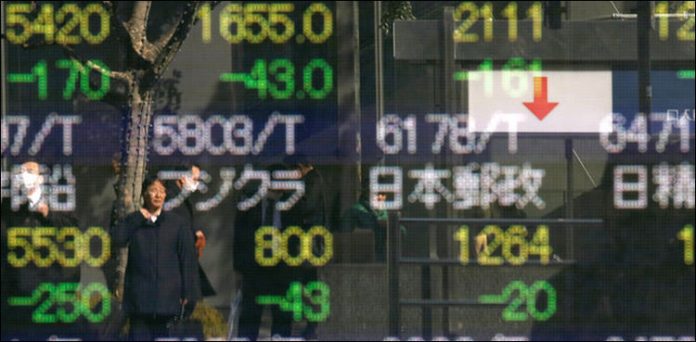SHANGHAI, (DNA) – Asian shares rose early on Monday, taking support from Wall Street’s gains on Friday after US Federal Reserve Chairman Jerome Powell said a gradual approach to raising rates was best to protect the U.S. economy and job growth.
Powell’s comments, which were in line with market expectations, helped to push the index.SPX and Nasdaq Composite.IXIC to record highs on Friday, cementing the S&P’s longest-running bull market, as defined by some investors.
In early Asian trade on Monday, S&P500 E-mini futures ESc1 touched a record high of 2,885 and were last 0.2 percent higher at 2,882.5.
“Powell’s Jackson Hole speech essentially confirmed the need for further gradual rate hikes and stressed that higher interest rates have served the economy well. However, rate rises remain data-dependent, and other Fed officials reiterated that ‘nothing is predetermined’,” ANZ analysts said in a note on Monday.
“The Fed Chair’s reiteration that rate rises would remain gradual gave the green light to ongoing falls in the USD and increases in equities on Friday.”
The US President Donald Trump said in interview last week that he was “not thrilled” with Powell’s rate hike policy, seeking more help with the economy from the Fed instead.
MSCI’s broadest index of Asia-Pacific shares outside Japan.MIAPJ0000PUS was up 0.1 percent, while Japan’s Nikkei stock index .N225 gained 0.6 percent.
Australian shares were up 0.1 percent, following a week of political tumult that saw the Scott Morrison become the country’s sixth prime minister in less than 10 years.
The dollar rose 0.05 percent against the yen to 111.28 JPY=, while the euro EUR= was up 0.13 percent on the day at $1.1636.
The dollar index .DXY, which tracks the greenback against a basket of six major rivals, was down 0.1 percent at 95.070.
U.S. crude CLc1 dipped 0.23 percent at $68.56 a barrel, and Brent crude LCOc1 fell to $75.68 per barrel after oil prices rose last week, ending a streak of weekly declines on tightening supply, driven by the prospect of lower oil supply from Iran.
The United States has pulled out of a nuclear accord it signed with Iran in 2015 and has imposed sanctions on Iran’s oil industry and exports.












